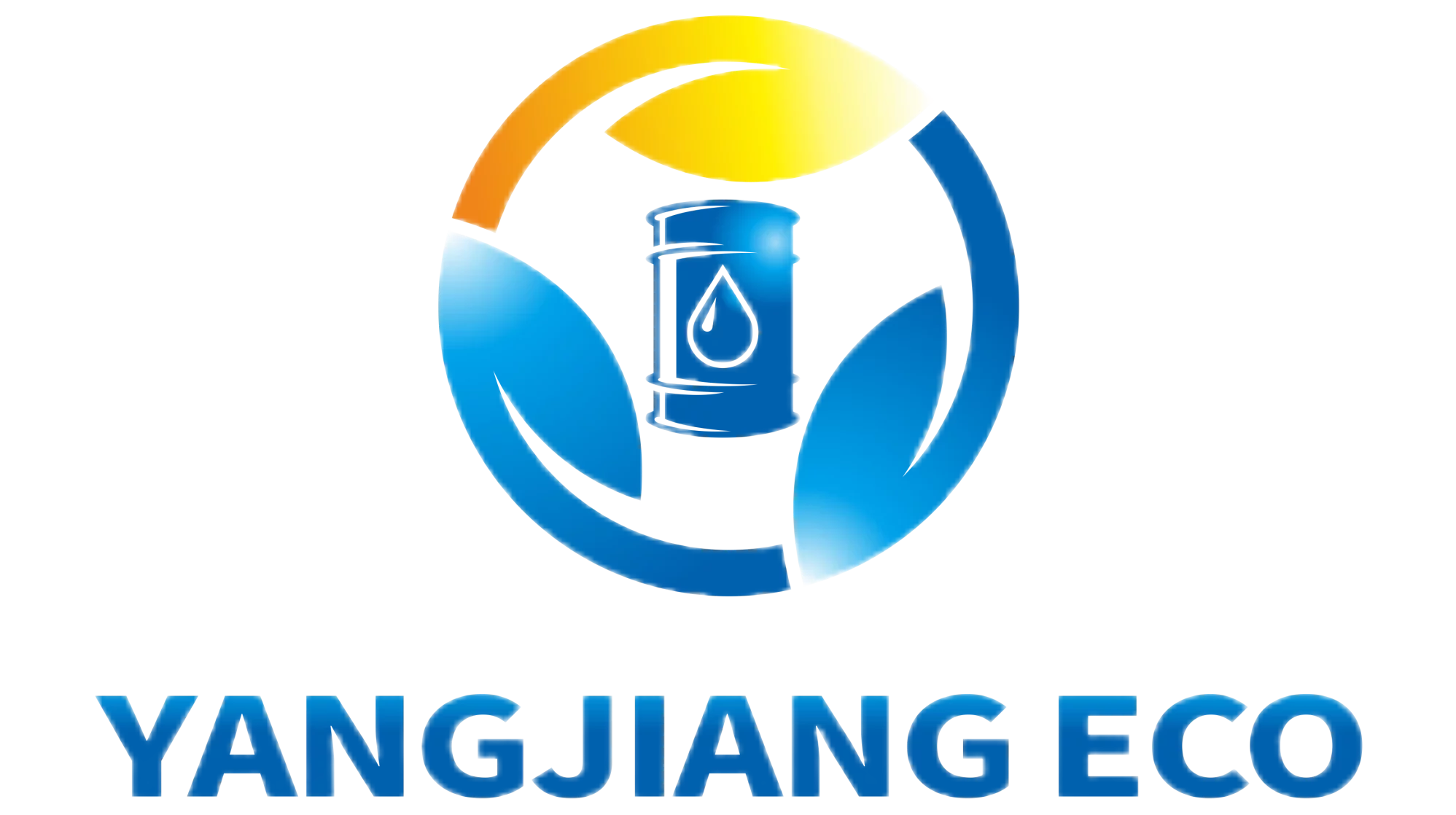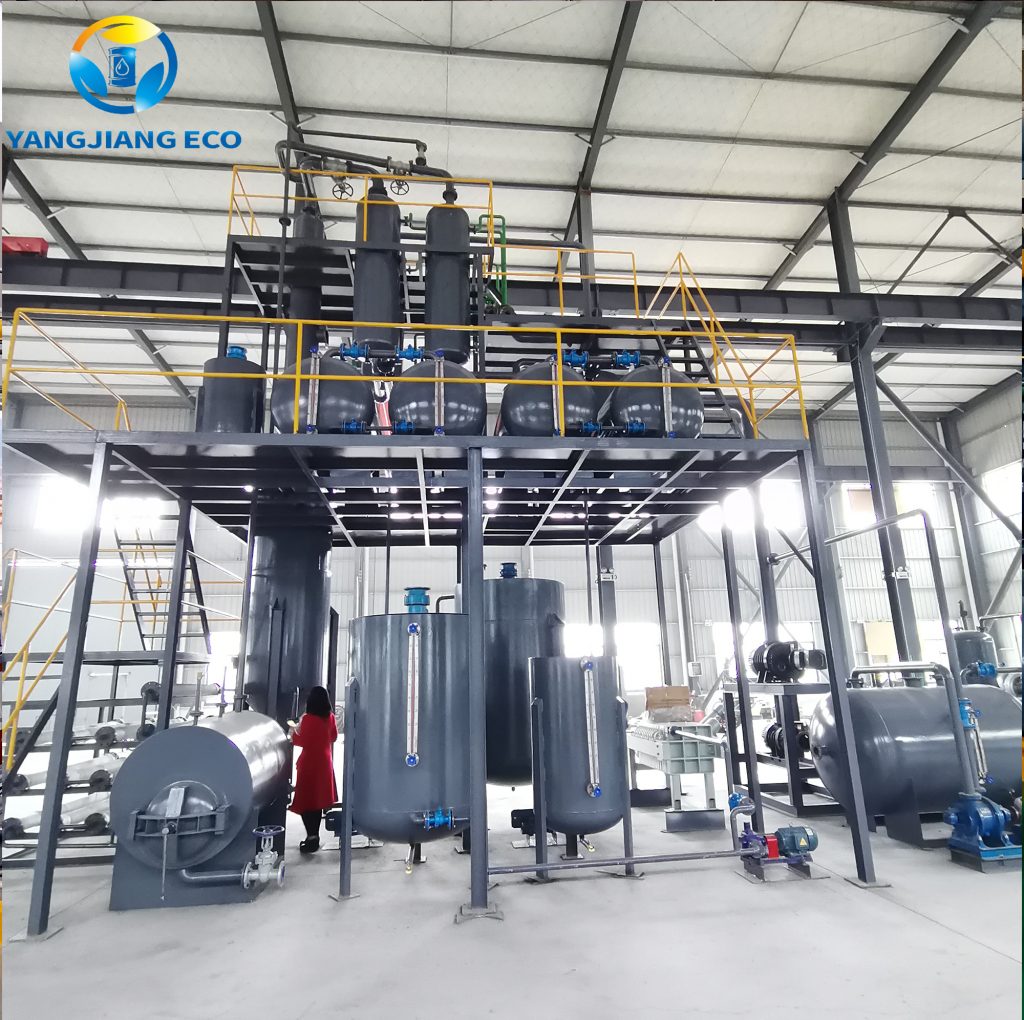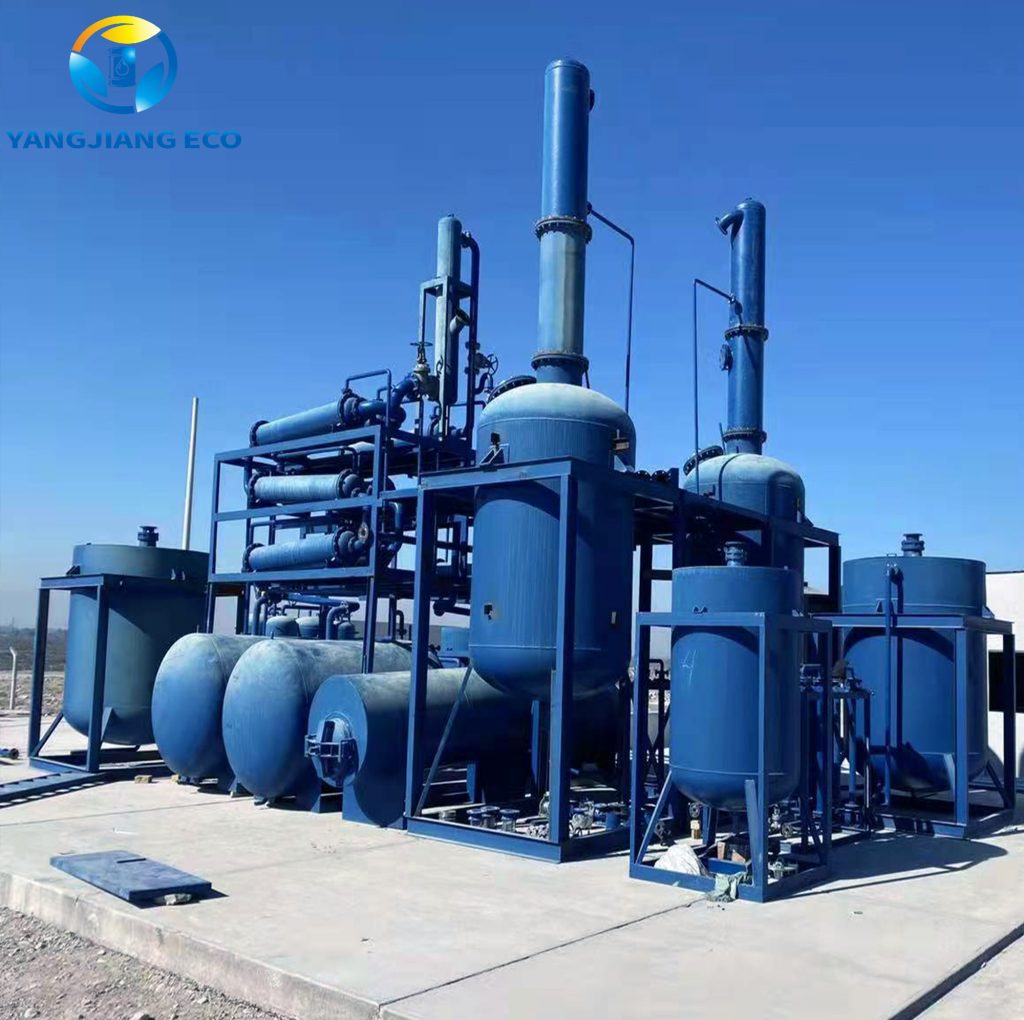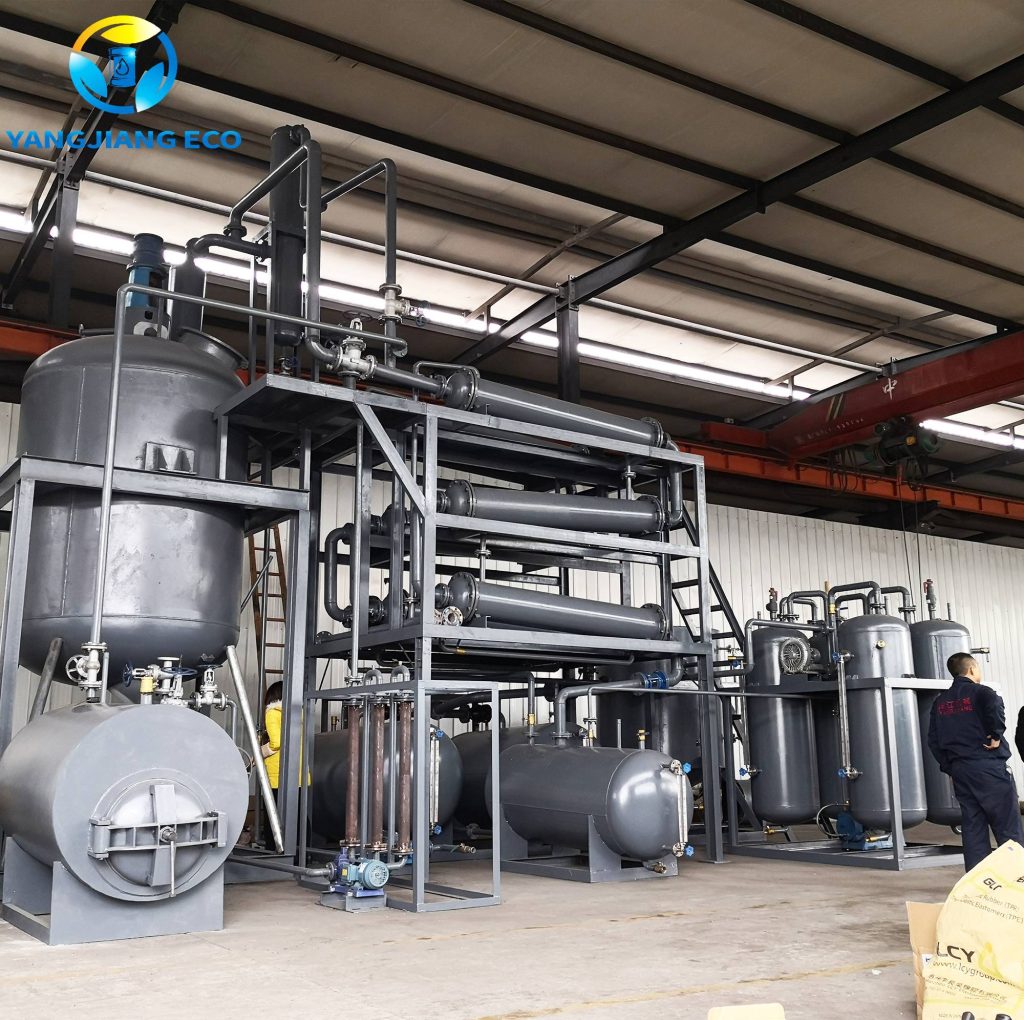Every year, our world produces millions of tons of waste oil ranging from automotive lubricants to industrial byproducts. Instead of allowing this hazardous material to pollute our environment, innovative technologies now enable businesses to convert it into valuable fuels and chemicals that they can sell as new sources for fuels or chemicals. Investment in used oil distillation plants represents an attractive business opportunity with eco-conscious investors as well.
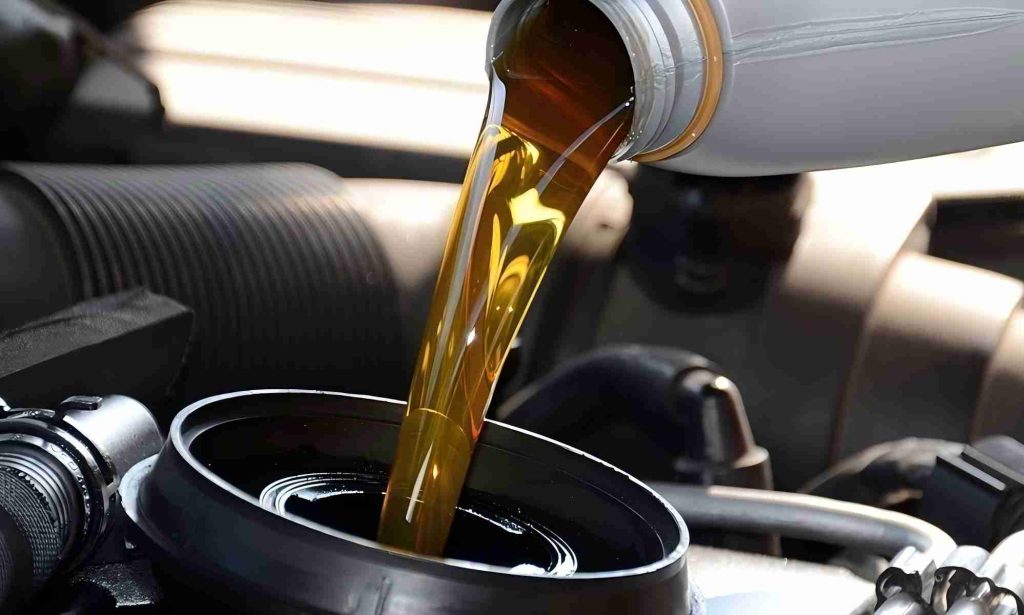
The Hidden Opportunity in Waste Oils
Did you know millions of tons of used motor oil, industrial lubricants, and hydraulic fluids are discarded annually? Instead of being seen as waste material, this material presents an invaluable business opportunity – the transformation of waste oil into valuable fuels and lubricants.
Waste oil recycling is both eco-friendly and financially lucrative. Used oil can be converted to diesel, base oils, and asphalt additives with strong market demand; prices fluctuating with climate regulations have made waste oil recycling an attractive, low-cost, sustainable alternative to traditional refining processes.
The best part? Waste oil is cheap or even free to collect. Garages, factories, and fleet operators often pay to dispose of used oil, meaning you can secure feedstock at minimal cost. Advanced distillation technologies then purify the oil into sellable products with profit margins of 30-50%.
Governments worldwide are encouraging waste oil recycling through tax incentives and grants, making it an even more attractive investment. Whether you’re an entrepreneur or an eco-conscious investor, the waste oil industry offers a lucrative, future-proof business model.
What is a Used Oil Distillation Plant?
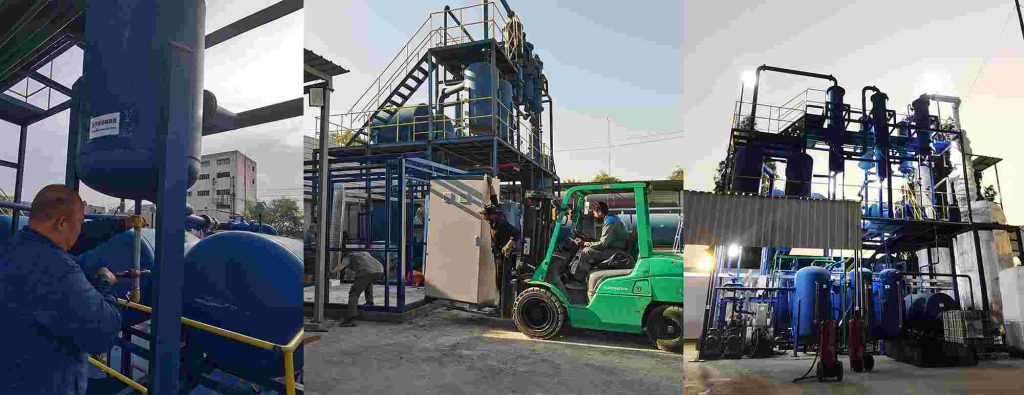
Used oil distillation plants are industrial facilities designed to convert waste lubricants, hydraulic fluids, and other petroleum-based waste into usable products through advanced refining processes. Instead of just filtering or burning these contaminants away, oil distillation plants use thermal and chemical treatments to identify valuable hydrocarbons while simultaneously breaking down contaminants that have built up.
Distillation plants serve to purify and upgrade waste oil by filtering out impurities such as sludge, heavy metals, water, and additives for refining into refined output products such as:
- Regenerated base oils – Suitable for producing new lubricants
- Light fuel oil – Used in boilers, generators, and industrial heating
- Heavy fuel oil – For marine engines and asphalt production
- Reusable solvents & chemicals – For industrial applications
Modern plants utilize vacuum distillation, catalytic cracking, and hydrotreatment processes to maximize efficiency and product quality. Some advanced systems even integrate emission control technologies to meet stringent environmental regulations.
These facilities range in scale, from small modular units processing a few tons per day to larger industrial plants that process hundreds of tons. Many operators prefer mobile or containerized systems for ease of sourcing waste oil from various locations.
By investing in used oil distillation plants, businesses not only reduce environmental harm but also gain access to an ever-increasing demand for recycled petroleum products. With rising crude oil prices and growing sustainability mandates, this technology represents a cost-effective, eco-friendly business solution with long-term profitability potential.
How Waste Oil Distillation Works?
A used oil distillation plant is an advanced recycling facility that transforms contaminated waste oils into valuable petroleum products through precise thermal separation processes. These innovative systems give new life to what would otherwise be hazardous waste, converting it into marketable fuels and lubricants.
At its core, this plant serves as a complex purification system that processes:
- Used motor oils
- Industrial lubricants
- Hydraulic fluids
- Transmission fluids
- Other petroleum-based waste
This technology uses controlled heating in an oxygen-free environment to separate different hydrocarbon fractions based on their boiling points. This process effectively removes water content, solid contaminants, chemical additives, heavy metals, and any other impurities present.
Modern distillation plants utilize multiple refining stages to guarantee high-quality outputs that comply with industry standards. The most advanced systems incorporate automated controls, energy recovery mechanisms, and emission treatment systems that maximize efficiency while minimizing environmental impact.
These facilities come in all capacities, from compact units processing 5-10 tons daily to larger operations with 50+ tons being processed daily. Many modern models feature modular designs to allow easier installation and scaling up operations as demand for their services increases.
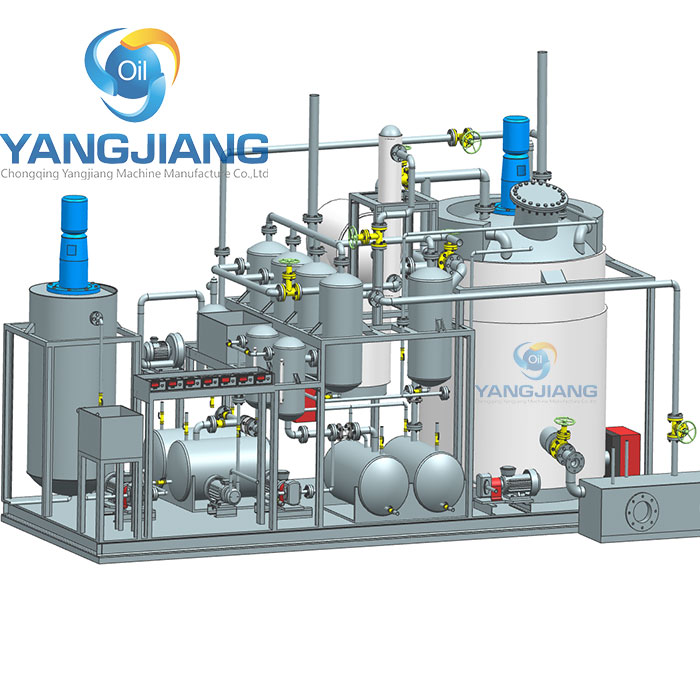
Potential Profit of Investing Waste Oil Distillation Plant
Investing in a waste oil distillation plant unlocks multiple revenue streams and cost advantages that traditional refining cannot match. By reclaiming value from what was once discarded, your business can capture profits in several ways:
- Product Sales: Refined base oils, diesel substitutes, and specialty hydrocarbons offer healthy margins, often selling at 60-80% below virgin-oil prices but with lower feedstock costs.
- Waste Disposal Fees: Most generators of used oil (garages, fleet, sand factories) pay processing fees or provide it at minimal costs to turn an otherwise wasteful disposal liability into an economically viable feedstock supply.
- Tax Credits & Incentives: Governments often offer grants, tax rebates, or tradable credits for recycling and renewable-fuel production to enhance your bottom line and help businesses remain sustainable.
- Energy Savings: Modern distillation units feature integrated heat recovery, which can significantly decrease overall energy usage compared to open-burn disposal methods by as much as 30%.
| Revenue Stream | Typical Rate/Benefit | Impact on ROI |
| Refined Oil Sales | $500–$1,200 per tonne | Up to 25% |
| Disposal/Collection Fees | $50–$150 per tonne collected | 5–10% |
| Renewable Energy Credits | $30–$80 per tonne of fuel-equivalent output | 3–8% |
| Operational Cost Savings | 20–30% energy reduction via heat integration | 10–15% |
Altogether, a well-optimized distillation plant can achieve annual returns on investment in the range of 20–35%, recouping capital costs in as little as 3–5 years—making it an attractive, sustainable venture.
Interested in Waste Oil Distillation Technology?
Are You Exploring Ways to Integrate Environmental Responsibility Into Profitable Business? Investing in Waste Oil Distillation Technology may be the perfect way to do just that. Demand for recycled oil products has steadily been on the rise due to regulations, rising fuel costs and global shifts towards sustainability; now is an opportune moment to become involved if you’re an entrepreneur, investor or industrial operation looking for ways to cut disposal costs while creating revenue streams.

One of the industry leaders in this field is YANGJIANG, a trusted manufacturer of waste oil distillation plants with over a decade of experience. YANGJIANG provides cutting-edge, fully automated distillation systems that are designed for efficiency, safety, and environmental compliance. Our solutions are used globally to recycle used engine oil, industrial lubricants, and other waste oils into high-quality base oils and diesel-like fuels.
Ready to profit from waste? YANGJIANG can help you start. Feel free to contact us at any time.
Recommended Products
